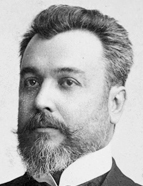

Silva Teles participated in national civic life, both within the University—where he would later serve as rector—and in political decision-making bodies. As a university student and young graduate, he was deeply influenced by the ideals of the 70s Generation, which were already asserting themselves in a persistent way. He enthusiastically supported the Camões Centenary tributes, and it is highly likely that the "ultimatum crisis" not only left a profound mark on his "pro-ultramarine" spirit but also reinforced his resolve to devote a portion of his intellectual, pedagogical, and institutional efforts to Portugal's "civilising mission" in the tropics, particularly within the African colonies.
The various conceptions of "time" reflected in Silva Teles' Geography are undoubtedly a significant aspect to take into account, warranting its inclusion in a historians' dictionary. Given the diversity of his professional career and the tumultuous evolution of geography during the corresponding period, it is unsurprising that these conceptions changed over time. In Concepção das Unidades Geográficas [Conception of Geographical Units], a "Newtonian" conception of mechanical, cyclical, and repetitive time prevails. The perspective on social life is that of a dynamic, homeostatic system in which nature responds to the disruptions caused by social turbulence to re-establish the natural balance of the earth's surface. Medical metaphors (available to those who were trained as doctors) are present throughout this initial text and throughout his work.
In " Conceito Científico da Geografia [Scientific Concept of Geography]" a "more original and mature" work (O. Ribeiro), the "evolutionist" conception of time is already clearer. Imbued with the same spirit that defines geography as a science across Europe and supports its academic institutionalisation, this text—more so than the thesis he submitted to the Higher Course of Letters—demonstrates Silva Teles' definitive alignment with the canons of international geographical thought of his era, under the overarching and predominant influence of Anthropogeographie by Ratzel. It was with this in mind that he published Rapport sur la climatologie inter-tropicale et les climats des colonies portugaises [Report on inter-tropical climatology and the climates of the Portuguese colonies], in which he clearly delimited the areas of possible "European acclimatisation" in the African colonies.
This work is financed by national funds through FCT - Foundation for Science and Technology, I.P, in the scope of the projects UIDB/04311/2020 and UIDP/04311/2020.
